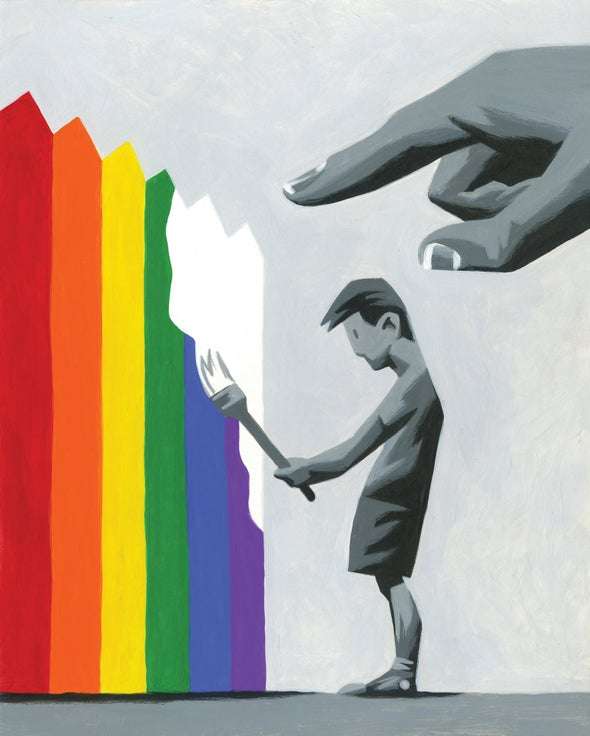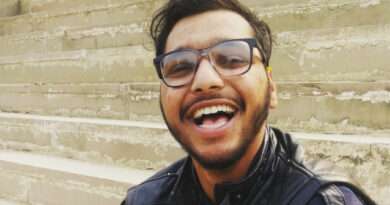The Threat Of Conversion Therapy
by Anurag Mukhia
TW: mention of abuse, conversion therapy, mention of suicide
The LGBTQ+ movement in India has seen gradual progress over the past couple of years with increased visibility and small victories, be it the flamboyant annual parades, decriminalization of homosexuality or positive portrayals in the cinematic space. However, the Queer community still faces harsh challenges that prove that LGBTQ+ individuals are still unsafe and are in need of immediate intervention from the Law which has still failed to deliver indispensable rights and protection to the vulnerable. This is evident by the tragic death of Anjana Harish aka Chinnu Zulfikar on May of this year, whose Facebook video uploaded on March unmasked an ugly reality that revealed the presence of grave danger to LGBTQ+ youth – Conversion Therapy.
Conversion Therapy, also known as ‘reparative therapy’, is the practice of trying to change an individual’s sexual orientation from a non-conforming identity to heterosexual using psychological, physical, or spiritual interventions. Such practices have been discredited by every mainstream medical and mental health organization for decades with concerns over its inefficiency and harmful effects, but due to continuing discrimination and societal bias against LGBTQ people, some practitioners continue to conduct conversion therapy. Treatment methods can range from counseling, medication, institutionalization, and hormone injections to rare but extreme methods like electro-convulsive therapy and hormonal castration.
Conversion therapists use a variety of shaming, emotionally traumatic, or physically painful stimuli to make their victims associate those stimuli with their LGBTQ identities. Conversion therapy amplifies the shame and stigma that so many LGBTQ young people already experience. Minors are especially vulnerable, and conversion therapy can lead to depression, anxiety, drug use, homelessness, and suicide.
This dangerous practice is rooted in the false belief that homosexuality is a disease and it can be cured despite the fact that in February 2014, the Indian Psychiatric Society (IPS) issued a statement, in which it stated that there is no evidence to prove that homosexuality is unnatural: “Based on existing scientific evidence and good practice guidelines from the field of psychiatry, the Indian Psychiatric Society would like to state that there is no evidence to substantiate the belief that homosexuality is a mental illness or a disease.”
But Harish’s death has put a spotlight on the prevalence of this pseudo-scientific therapy – a stinging reminder that LGBTQ+ people in India have yet to overcome the immense hurdles and threats that still plague the community. Research has suggested that LGBTQ+ people are not only more likely to suffer from mental health problems compared to their heterosexual peers, but there’s also a higher percentage of suicide rates. Based on another research in over 100 countries that use conversion therapy, 8,000 respondents who had endured it was interviewed, with 98% reporting that it had caused them psychological or physical damage.
Currently, there are only five countries in the world that have implemented a nation-wide ban on this unethical practice: Malta, Brazil, Taiwan, Ecuador, and Germany. Although other nations are in the process of seeking such a ban or have prohibited the practice in some states, homosexuality is still illegal in some 68 countries, and punishable by death in more than a dozen.
Earlier this year, the Independent Forensic Expert Group (IFEG) of health specialists, declared that conversion therapy is a form of deception, false advertising, and fraud. Private and public mental health-care providers, religious organizations, traditional healers, and State agents are all perpetrators of this intervention – often supported by family, community members, and political authorities. Apart from being harmful, conversion therapy is also discriminatory and violates human rights laws. Citing such reasons, Independent UN expert Victor Madrigal-Borloz called for a global ban on the dangerous practice and presented his findings to the human rights organization in June.
The prevalence of such practices is directly related to just how deeply scorned and feared LGBTIQ people are in societies around the world, aided by ignorance and fear. These practices hinge on the notion that gender identities beyond the binary and same-sex attraction are an anomaly, a sickness to be “cured” – if need be by brutal, inhuman force. As such, conversion therapy cannot be tackled in isolation. The demand for such practices will decrease only if social, family and religious acceptance of LGBTIQ lives increases. Consequently, any legal efforts to tackle conversion therapy have to go hand in hand with measures designed to promote understanding, acceptance, and inclusion of LGBTIQ people.
In India, LGBTQ+ activists and NGOs are participating in the Queer movement to demand protection from such dangers. The first milestone is the Mental Healthcare Act of 2017, which makes it illegal to treat an adult without their express consent, or that of a nominated representative in case they can’t give informed consent. It also prohibits mental health professions from prescribing medicines or performing treatments “not authorized by the field of his profession”.
Harish’s death exposed the ongoing threat against the LGBTQ+ community in our country. It is a stark reminder of the work yet to be done and the fight yet to be fought. Despite being decriminalized, homosexuality and other gender identities are still considered taboo and the freedom of our community is still under threat. We can only hope that in the coming years, our efforts will be fruitful and our country will become a safe place for all marginalized communities.




